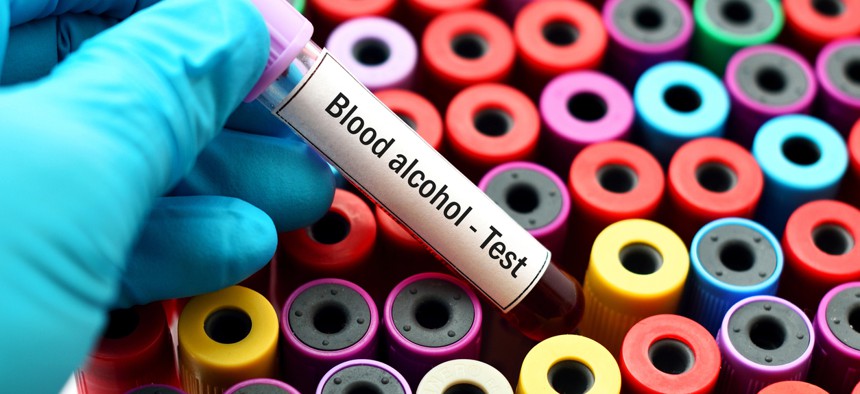Another State Will Train Police to Draw Blood From Drunk Driving Suspects

istock.com/jarun011
Georgia will establish a phlebotomy program to instruct law enforcement officers on how to collect blood samples, the latest in a growing number of states to embrace the practice.
Law enforcement officers in Georgia will be trained in phlebotomy, allowing them to draw blood from drunk driving suspects on the road, officials with the Georgia Governor’s Office of Highway Safety said.
Up to 100 state and local police officers will be trained in the phlebotomy program, which will be overseen by the Georgia Public Safety Training Center. The initiative, funded via a $44,190 grant from the Governors Highway Safety Association and the Foundation for Advancing Alcohol Responsibility, aims to collect blood evidence early in the investigative process, when alcohol levels are more accurate.
“A blood test is often the key piece of evidence needed to convict a DUI driver in court, but the barriers law enforcement officers are facing in getting blood drawn during a DUI investigation are resulting in too many of these cases going to trial without any toxicology evidence,” Allen Poole, director of the Georgia Governor’s Office of Highway Safety, said in a news release. “Officers being able to perform blood draws should lead to more convictions and hopefully serve as a deterrent for more people to not make the selfish decision to drive when they are under the influence of alcohol or drugs.”
Officers in the program will receive 10 hours of online training and 32 hours of classroom instruction, all provided initially by West Georgia Technical College. Upon completion of the program, officers will have the same qualifications as phlebotomists, licensed medical professionals who draw blood in hospitals, doctor’s offices and other medical facilities.
Blood draws from suspected drunk drivers are legal in every state under what’s known as implied consent law, where drivers who appear under the influence are presumed to have agreed to testing as a condition of receiving their licenses. The Supreme Court has also ruled that officers can order blood drawn from unconscious drunk-driving suspects.
In Georgia, residents sign an agreement when they receive their license “that they will not operate a vehicle under the influence of any substance that impairs their driving ability, and the agreement states that their license will be suspended if they refuse to consent to a blood test,” said Roger Hayes, law enforcement director of the state Governor’s Office of Highway Safety.
Officers already perform breathalyzers in the field, Hayes said, but blood tests are considered more accurate and can also screen for drugs.
Other State Programs
A handful of other states have similar programs in place, including Idaho, Minnesota, Utah and Washington, according to the National Highway Traffic Safety Administration. Arizona was the first state to establish its law enforcement phlebotomy program, which began in 1995.
Some state agencies in Georgia have phlebotomy programs in place, Hayes said. Officers eligible for the new state-level program include those who work for agencies that receive grant funding from the highway agency, including the Georgia State Patrol Nighthawks and the state Highway Enforcement of Aggressive Traffic units. The first training class of 16 officers is already full, he said.
“The response we have gotten to this program has been positive, and a number of agencies around the state have indicated they want to have officers in their department with this certification. In fact, several agencies currently have this capability,” he said in a statement. “Getting drunk and drugged drivers off the road saves lives but convicting them of DUI will help ensure they do not make the mistake of driving impaired again.”
Kate Elizabeth Queram is a senior reporter for Route Fifty and is based in Washington, D.C.
NEXT STORY: How Students Will Rely on the Vaccinated to Stay Safe





